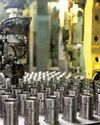
A significant span of three years has transpired post the announcement, positioning fortified rice for distribution in every district of each state, barring those mainly reliant on wheat consumption. The principal objective is to enrich rice with essential nutrients, particularly in regions where rice serves as a dietary cornerstone, thus concurrently mitigating micronutrient deficits.
Rice, being a staple sustenance for 65 per cent of India’s populace and a staple within government safety net programmes, holds immense potential for enhancing nutrition by incorporating essential vitamins and minerals. The concept of nutrition access encapsulates various dimensions, including Accessibility, Availability, Acceptability, Affordability, Adequacy, and Awareness. Together, these aspects shape the convenience and effectiveness individuals experience when accessing and utilising these vital services.
Accessibility involves the ease of accessing a service based on its location, considering both proximity and time. India’s efforts in social assistance target vulnerable segments, leveraging three existing programmes to enhance nutrition via food fortification: Public Distribution System (PDS) for 800 million individuals, PM Poshan School Lunch Programme for 118 million students, and Integrated Child Development Services (ICDS) for 110 million recipients. Integrating fortified rice into these schemes combats micronutrient deficiencies at scale, improving accessibility. Proximity of ration shops, provision of school meals, and availability of nutrition centres enhance access. These initiatives, well-tuned at the grassroots level, exhibit India’s administrative efficiency and sustainable resource use, ensuring ample service provision.
This story is from the {{IssueName}} edition of {{MagazineName}}.
Start your 7-day Magzter GOLD free trial to access thousands of curated premium stories, and 9,000+ magazines and newspapers.
Already a subscriber ? Sign In
This story is from the {{IssueName}} edition of {{MagazineName}}.
Start your 7-day Magzter GOLD free trial to access thousands of curated premium stories, and 9,000+ magazines and newspapers.
Already a subscriber? Sign In

MEMORIES & IMPRESSIONS
Ratan Tata was an exceptional human being. He was a visionary leader, esteemed industrialist, and a humanitarian, who left an indelible mark on India and the world.

The Robotaxi Market
The robotaxi market is shaping up to be a high-stakes battleground as tech giants and automakers race to transform urban mobility.

And the Nobel Prize Goes to AI
The recent Nobel Prize T awards to AI pioneers affiliated with Google have sparked a broader conversation about Big Tech's influence on research and the limitations of traditional prize categories.

Ola Electrified
Once considered a trailblazer in India’s electric vehicle (EV) ecosystem, Bhavish Aggarwal’s Ola Electric now faces a major accountability crisis.

Sharp Slide in Industrial Output on Eve of Deepavali
India’s index of industrial production (IIP) saw a sharp reversal in August, contracting by 0.1 per cent, in stark contrast to the 4.7 per cent growth in July, mostly because of significant contractions in mining and electricity generation.

Heralding the Solar Era with Sustainable Electrification
RAJEEV KASHYAP on the economics of solar power, the hurdles in scaling it, and much more

A WELL-GREASED MACHINE
The OmniBook X14 laptop runs on first-generation Snapdragon X Elite, which bets big on Al-enabled productivity and battery life, but falls short when it comes to overall experience, says Deep Majumdar

DO NOT LETA HEALTH CRISIS RUIN YOUR FINANCIAL HEALTH
For a family of four living in a metro, it is recommended to opt for a family floater health insurance plan with a sum insured of at least Rs 15-20 lakh

Disruption Ahead: Beyond Organisation Charts and Structures
ALBERT EINSTEIN FAMOUSLY said, “We cannot solve our problems with the same thinking we used when we created them.

Dr. Rahul Shivajirao Kadam: A Visionary Leader Blending Sustainability, Innovation, And Social Empowerment
We are on the stage of global warming, and these technologies not only help prevent further damage but also leave behind a better environment for future generations.